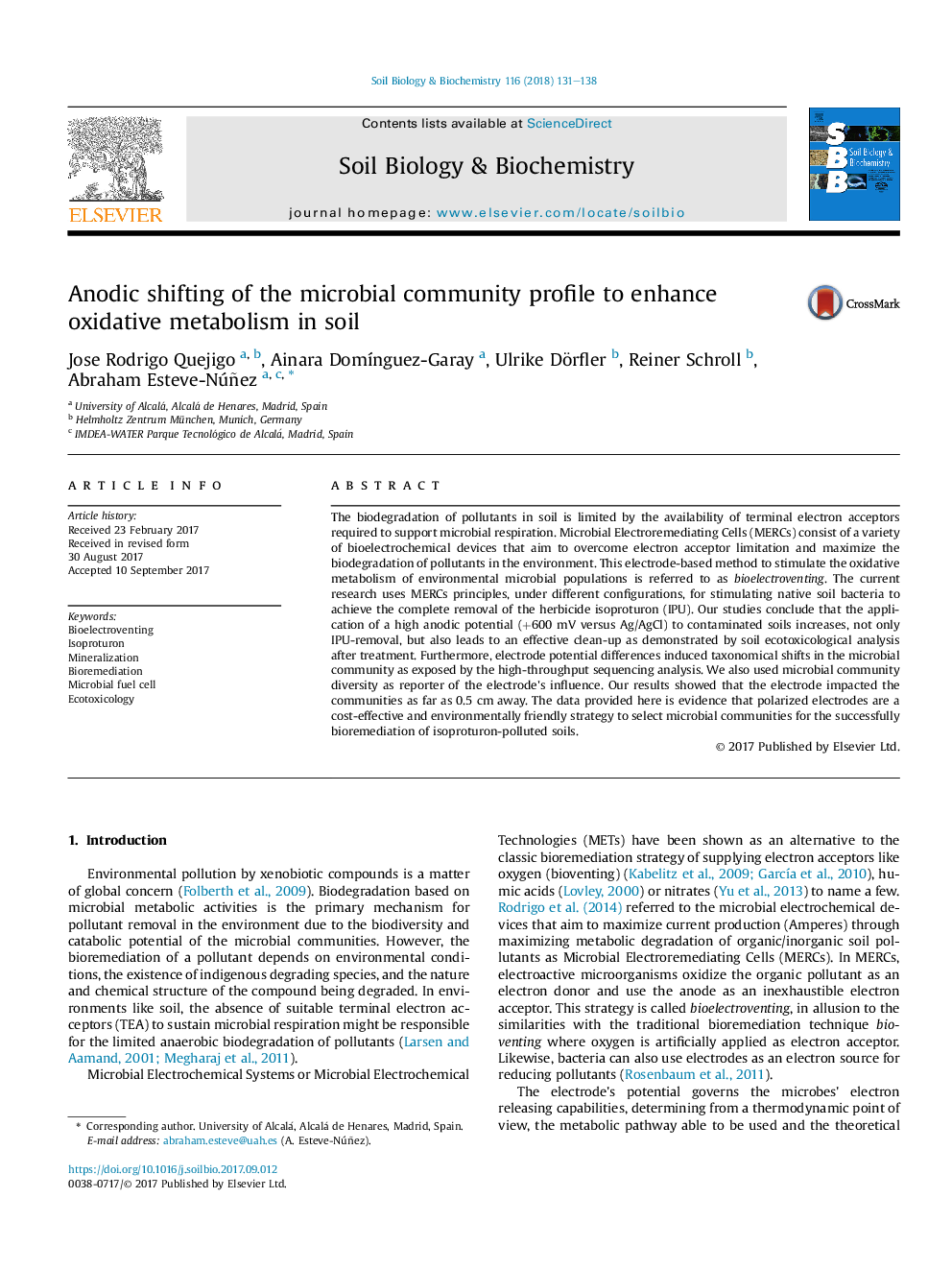| کد مقاله | کد نشریه | سال انتشار | مقاله انگلیسی | نسخه تمام متن |
|---|---|---|---|---|
| 5516216 | 1542568 | 2018 | 8 صفحه PDF | دانلود رایگان |
- High anodic potentials enhance in situ 14C-pollutant mineralization.
- MERCs clean up 14C-IPU (isoproturon) polluted soil.
- Electrode potential determine the environmental fate of IPU and its metabolites.
- Electrodes induces taxonomical changes in the soil microbial community.
- Anodic influence over soil microbial community spreads at least for 0.5Â cm.
The biodegradation of pollutants in soil is limited by the availability of terminal electron acceptors required to support microbial respiration. Microbial Electroremediating Cells (MERCs) consist of a variety of bioelectrochemical devices that aim to overcome electron acceptor limitation and maximize the biodegradation of pollutants in the environment. This electrode-based method to stimulate the oxidative metabolism of environmental microbial populations is referred to as bioelectroventing. The current research uses MERCs principles, under different configurations, for stimulating native soil bacteria to achieve the complete removal of the herbicide isoproturon (IPU). Our studies conclude that the application of a high anodic potential (+600Â mV versus Ag/AgCl) to contaminated soils increases, not only IPU-removal, but also leads to an effective clean-up as demonstrated by soil ecotoxicological analysis after treatment. Furthermore, electrode potential differences induced taxonomical shifts in the microbial community as exposed by the high-throughput sequencing analysis. We also used microbial community diversity as reporter of the electrode's influence. Our results showed that the electrode impacted the communities as far as 0.5Â cm away. The data provided here is evidence that polarized electrodes are a cost-effective and environmentally friendly strategy to select microbial communities for the successfully bioremediation of isoproturon-polluted soils.
Journal: Soil Biology and Biochemistry - Volume 116, January 2018, Pages 131-138
